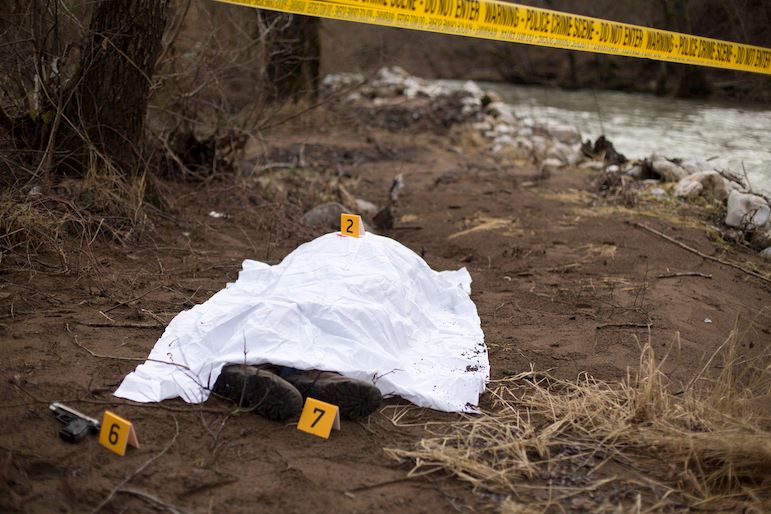The Critical Mission of Criminal Justice Majors
Students and law enforcement personnel pursuing a criminal justice degree go on to protect the people we love, our communities, our laws, and in many ways, the well-being of our country.
Criminal justice (CJ) graduates are the keepers of our society’s most important virtues regarding law and order. Those who study criminal justice will be challenged to confront the complexities of morality and fairness. Many roles that make up the field have a hand in keeping our society safe and healthy.
Through the study of criminal justice, you have the chance to learn about the laws that govern us and the universal values that define us.
Individuals who obtain a criminal justice degree are determined, compassionate, and devoted tacticians pursuing justice, unraveling mysteries, and piecing together meaningful, complex puzzles of criminal activity.
To pursue a criminal justice degree means you’re committed to ensuring everyone’s safety and dignity. If you’ve got the will to earn a college degree and are committed to protecting public safety, this is one way to begin: with a degree in criminal justice.
Top Programs
All Related Programs
The Value of a Criminal Justice Degree
A degree in criminal justice is highly respected and demonstrates your dedication and knowledge of the criminal justice system. Criminal justice degrees position graduates to be capable and informed professionals, ready to make a meaningful contribution to a community.
Here are some key benefits of earning a CJ degree:
Validation Indicator
Your criminal justice degree represents a solid understanding of the legal, ethical, and constitutional criteria that guide law enforcement. It also validates that you understand the responsibility of upholding justice and public safety. Many employers, from the military to law enforcement agencies, highly value the skill set this degree develops.
Diverse Opportunities
The flexibility of a criminal justice degree is also a substantial advantage. The multi-faceted nature of criminal justice provides students with a well-rounded education that incorporates elements of sociology, psychology, law, and public policy. This means graduates are prepared for a wide range of opportunities in a role that aligns closely with their interests, needs, and strengths.
Specialized Training and Skill Development
A degree in criminal justice also trains you with a versatile skill set and specialized knowledge, allowing you a deeper understanding of underlying issues that affect not only the justice system but society as a whole. With this training, you’ll learn the methods, techniques, and tools to tackle the issues communities often face.
The Value of Digital Forensics
Considering our device-driven and digital-heavy dependencies, digital forensics continues to have significance for law enforcement. Cyber threats continue to evolve, and digital crimes are increasing in complexity.
American Military University (AMU) is one of the few universities nationwide to offer digital forensics programs online. In fact, we offer a full bachelor’s degree focusing on criminal justice with a concentration in digital forensics, as well as an undergraduate certificate in digital forensics. In these programs, you can dive deep into everything from its basic importance in our society to advanced techniques in computer forensics and investigation, analysis, and evidence collection.
Courses are designed to equip students with the cutting-edge skills needed to navigate and safeguard the digital domain. This training is designed to prepare students to become an asset in the fight against digital crime.

Why AMU is Great for Law Enforcement Personnel
Current and aspiring law enforcement personnel reflect the spirit of AMU. While we were founded for the military, we are open to students from all walks of life. You will study in conjunction with various affinity groups, including government personnel and other civil servants, as well as both former and active military servicemembers and students from diverse academic fields.
You will share your educational journey with others who possess similar values, motivations, experiences, and goals. This means you could have the chance to forge meaningful relationships while also making professional connections.
AMU has carefully designed all its online criminal justice degree programs to support the needs of police officers and working professionals in a variety of ways. We recognize our active-duty servicemembers, veterans, and working professionals benefit from our flexible online format, networking platforms, and dedicated faculty and student services members who are eager to learn about you and assist you throughout your educational mission.
We offer career-relevant programs with rigorous curricula that align with real-world demands, so you can enroll, learn, and complete your coursework with a goal to walk the stage at your graduation.
We are honored to have supported many in the public safety community on their journey, delivering an education that meets the formidable requirements of the real world. We offer transfer-friendly policies and course start dates each month, and we are prepared to support you whether you’re transitioning to a new role or continuing your service career. With our strong law enforcement community and faculty and staff, many of whom served our country themselves, you’re never alone at AMU.
How a Criminal Justice Degree Helps Law Enforcement Personnel
A criminal justice degree may have the potential to boost your professional opportunities. Not only does a criminal justice degree deepen your understanding of the law and criminal behavior, but it also sharpens your problem-solving, decision-making, and communication skills.
A criminal justice degree can demonstrate that you’re serious about the badge and is often a requirement for those seeking employment or advancement.
Here are some more ways a criminal justice degree can help aspiring or active law enforcement officers:
Improved Analytical Abilities
The coursework in a criminal justice program often includes critical thinking, research, and analysis, which are crucial for problem-solving and decision-making in law enforcement tasks.
Legal and Ethical Understanding
Understanding the ethical and legal frameworks within which law enforcement operates is crucial. A degree in criminal justice helps officers navigate these complexities, which can reduce the risk of legal issues and enhance community trust.
Specialization Opportunities
Criminal justice degrees may offer specializations in areas like forensic science, cybersecurity, or juvenile justice, allowing law enforcement personnel to develop expertise in specific areas of interest.
Networking and Professional Development
Pursuing a degree in criminal justice provides opportunities to connect with professionals in the field, learn from their experiences, and access resources for continuous learning and development.
The Benefits of an Online Format
Typically, the online education format is purposefully designed to meet the needs of students who are working professionals. The digital format allows students to access course materials and assignments at any time, from any location with internet access, providing the utmost flexibility to fit their studies into busy schedules. This adaptability is particularly beneficial for working professionals who need to juggle job responsibilities with academic pursuits.
Here are some other big advantages of an online format:
Note: These programs are not designed to meet the educational requirements for professional licensure or certification in any state. These programs have not been approved by any state professional licensing body and do not lead to any state-issued professional license.
What Can You Do with a Criminal Justice Degree?
Whether you are interested in working in law enforcement, corrections, or the legal field, you can prepare for numerous roles.
A criminal justice degree may be sought by those interested in:
Law Enforcement Officer (Police Officer, Deputy Sheriff, State Police, FBI, DEA, ATF): These officers maintain law and order, respond to emergencies, and defend public safety by patrolling neighborhoods, investigating criminal activities, and apprehending suspects. They serve at different governmental levels to uphold justice and protect the well-being of citizens.
Probation Officer (PO): Probation officers supervise individuals who have been placed on probation, ensuring they comply with court-ordered conditions. POs facilitate their rehabilitation by providing support, resources, and referrals to services aimed at promoting successful reintegration into society.
Corrections Officer: Corrections officers maintain safety and security within correctional facilities by overseeing inmates, enforcing rules and regulations, and preventing disturbances, while also facilitating rehabilitation efforts through programming and counseling aimed at promoting positive behavior change.
Detective or Criminal Investigator: Detectives and criminal investigators conduct thorough investigations into criminal activities. They gather evidence, interview witnesses, and analyze information to solve crimes, apprehend suspects, and ensure that justice is served. They often specialize in specific types of crimes such as homicide, fraud, or narcotics offenses.
Crime Scene Investigator: Crime scene investigators collect, preserve, and analyze physical evidence found at crime scenes using scientific methods and techniques, providing crucial information and insights to investigators and prosecutors to help establish the facts of a case and identify suspects, contributing to the successful resolution of criminal investigations.
Private Investigator: Private investigators conduct investigations on behalf of individuals, businesses, or organizations, gathering information, conducting surveillance, and uncovering facts related to legal, personal, or financial matters, often providing valuable assistance to clients in legal proceedings or personal matters.
Legal Assistant or Paralegal: Legal assistants and paralegals support lawyers and legal professionals by conducting legal research, drafting legal documents, and assisting with case preparation and management. They play a vital role in the legal process, ensuring the efficient delivery of legal services to clients.
Homeland Security Agent: Homeland security agents protect the nation from terrorism and other security threats by assessing risks, conducting investigations, and implementing measures to prevent and respond to threats, collaborating with other agencies and stakeholders to safeguard critical infrastructure and maintain national security.
Security Manager: Security managers oversee security operations within various settings, including businesses, government facilities, and public venues, developing and implementing security protocols, training personnel, and managing security personnel to ensure the safety and protection of people, assets, and property against potential threats and hazards.
Victim Advocate: Victim advocates provide support, assistance, and advocacy services to victims of crime, guiding them through the criminal justice process, connecting them with resources and services, and ensuring their rights are upheld, empowering victims to navigate their recovery and seek justice while addressing their needs and concerns.
Education: Graduates with a criminal justice degree may serve as advisors, educators, professors, or lecturers in schools and colleges, imparting their knowledge, experience, and insights to the next generation of CJ professionals.
Some common roles for those with a military background and a criminal justice degree:
Military Police (MP): Serving as law enforcement officers on military bases and installations, MPs enforce laws and regulations, provide security, and support military operations both domestically and overseas.
Intelligence Analyst: Intelligence analysts in the military collect and analyze information to assist in planning and conducting military operations. A criminal justice background is beneficial for understanding law enforcement techniques, counterintelligence, and security measures.
Investigative Officer: Roles such as those with the Army's Criminal Investigation Division (CID) or the Naval Criminal Investigative Service (NCIS) involve investigating crimes within the military, requiring a deep understanding of criminal justice principles.
Criminal Justice Resources

Livor Mortis Provides Crucial Evidence for Investigators

Critical Thinking and Writing Skills: Essential for Officers

Trauma-Informed Victim Interviewing

Additional Resources
FAQs About Criminal Justice Degrees
The difference between a BA and a BS in criminal justice primarily lies in the focus and coursework of each degree, which reflects distinct educational paths tailored to different career objectives within the field of criminal justice.
Bachelor of Arts (BA) in Criminal Justice
- Liberal Arts Focus: A BA degree typically has a broader liberal arts focus, incorporating a wider range of humanities and social science courses. This approach is designed to develop critical thinking, communication, and analytical skills.
- Elective Flexibility: Students may have more flexibility in choosing electives that align with their interests, such as psychology, sociology, or political science, which can provide a more comprehensive understanding of the societal factors related to criminal behavior and the justice system.
- Career Paths: Graduates with a BA in Criminal Justice are well-suited for roles that require strong communication and analytical skills, such as positions in law enforcement, social services, or community outreach programs.
Bachelor of Science (BS) in Criminal Justice
- Technical and Practical Focus: A BS degree generally emphasizes a more technical or practical approach to criminal justice. The curriculum may include more courses in the natural sciences, mathematics, or applied criminal justice technologies, like digital forensics.
- Specialized Coursework: Students might encounter more specialized coursework related to forensic science, criminalistics, or cybercrime, preparing them for specific technical roles within the criminal justice field.
- Career Paths: Graduates with a BS in Criminal Justice are often considered for roles that require a detailed understanding of the technical aspects of criminal justice, such as crime scene investigation, forensic analysis, or cybersecurity within law enforcement agencies.
Deciding which bachelor’s degree to pursue depends on your career goals, interests, and the specific skills you want to develop.
Here are some key points to consider:
Your professional goals: Consider what type of role you envision for yourself within the criminal justice system. Do you see yourself working directly on crime scenes, or are you more interested in the societal impact of crime and rehabilitation?
Your interests: Reflect on whether you're more fascinated by the science and practicality of criminal justice or the social theories and policies behind it.
Educational content: Compare the curriculums of both BA and BS programs to see which more closely aligns with your interests and career aspirations.
Truth is, while a criminal justice major can be demanding, its challenges are also what make it a rewarding field of study. The difficulty of a criminal justice major will vary based on several factors, including your personal interests, strengths, and the specific requirements of your program.
Yes, there is. While criminal law specifically deals with the legal aspects and consequences of crime, criminal justice covers a wider spectrum, including the societal implications of criminal behavior and the recognition of victims' rights.
The Bureau of Labor Statistics (BLS) projects overall employment of police and detectives to grow from 2022 to 2032.
Bureau of Labor Statistics, U.S. Department of Labor, Occupational Employment Statistics, [career data accessed April 2024] https://www.bls.gov/ooh/protective-service/police-and-detectives.htm. Employment conditions in your area may vary.
Learn More
Obtaining a criminal justice degree could bring great professional and personal fulfillment and it may transform how you view, navigate, and interact with the world. When you’re ready, we have admissions representatives available, dedicated to ensuring that you choose the program that aligns best with your goals. We encourage you to reach out if you need assistance or more information: 877-755-2787 or [email protected].












